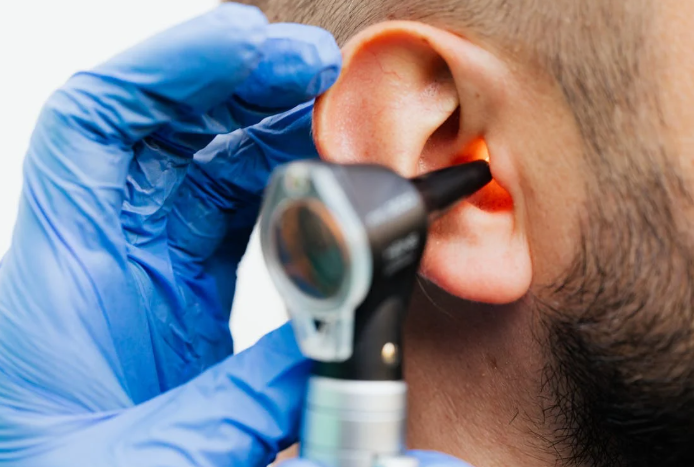If you feel like everyone around you is mumbling, you’re either hanging out with moody teenagers or most likely you’re experiencing hearing loss. As hearing diminishes, our ability to perceive high-pitched sounds (like consonants) is usually one of the first things to decline. Although one may be able to detect the overall volume of surrounding voices, this makes things seem muffled and unclear. Importantly, mild to moderate hearing loss can have a range of health implications and may require support to manage effectively. Here’s a summary of the key aspects:
Health Implications:
1. Social Isolation and Communication Challenges: People with hearing loss may find it difficult to participate in conversations, leading to feelings of frustration or withdrawal. This can contribute to social isolation, particularly in group settings or noisy environments.
2. Cognitive Effects: Untreated hearing loss has been linked to an increased risk of cognitive decline and dementia. The brain may be overtaxed as it works harder to process sounds, leading to reduced cognitive function over time.
3. Emotional Well-being: Hearing loss can lead to stress, anxiety, or depression due to the difficulties it creates in communication and the potential impact on social and work life.
4. Impact on Relationships: Difficulty in communication may strain personal relationships with family, friends, and colleagues. Misunderstandings or the need to constantly ask people to repeat themselves can be frustrating for both the person with hearing loss and their loved ones.
5. Safety Concerns: Hearing loss can impact a person's ability to hear important sounds like alarms, traffic, or warning signals, which may increase the risk of accidents and injury.
Support and Management:
1. Hearing Aids: For mild to moderate hearing loss, hearing aids are often the first line of treatment. They amplify sound, making it easier to hear conversations and environmental noises.
2. Assistive Listening Devices: Devices such as amplified telephones, captioned phones, or hearing loops can help in specific situations where hearing is difficult.
3. Speech Therapy: For some, working with a speech-language pathologist may help improve communication skills and coping strategies, particularly in terms of speechreading or lip-reading.
4. Communication Strategies: People with hearing loss may benefit from strategies like positioning themselves in better hearing environments, ensuring clear visual cues, and asking others to speak more clearly or slowly.
5. Counseling and Support Groups: Emotional support through counseling or support groups can help individuals cope with the social and psychological impacts of hearing loss.
6. Regular Hearing Check-ups: Regular visits to an audiologist can help monitor hearing levels and make
Conclusion:
Should you run to the audiologist the minute you read this? There’s probably no rush but the average time it takes for a person to seek help once they notice a change in their hearing is eight years! Our amazing human brains are so good at adapting that you may have been getting by with a change in your hearing without even knowing what you’re missing.
Your innate intelligence finds ways to compensate that you may not even realize. Simple things like turning your head, or leaning forward to hear better, or asking people to repeat what they’ve said are typical examples. However, by addressing hearing loss early and seeking the appropriate support, individuals can maintain a high quality of life and reduce the potential long-term impacts of hearing impairment.
 Dr. David Hall is the owner of Hall Chiropractic Center. With over 40 years of experience, Dr. Hall is proud to serve the residents of Tega Cay and Fort Mill.
Dr. David Hall is the owner of Hall Chiropractic Center. With over 40 years of experience, Dr. Hall is proud to serve the residents of Tega Cay and Fort Mill.
Book a FREE consultation online today!
Sign up for our Sunday Spectator. Delivered to your inbox every Sunday, with all the news from the week.









